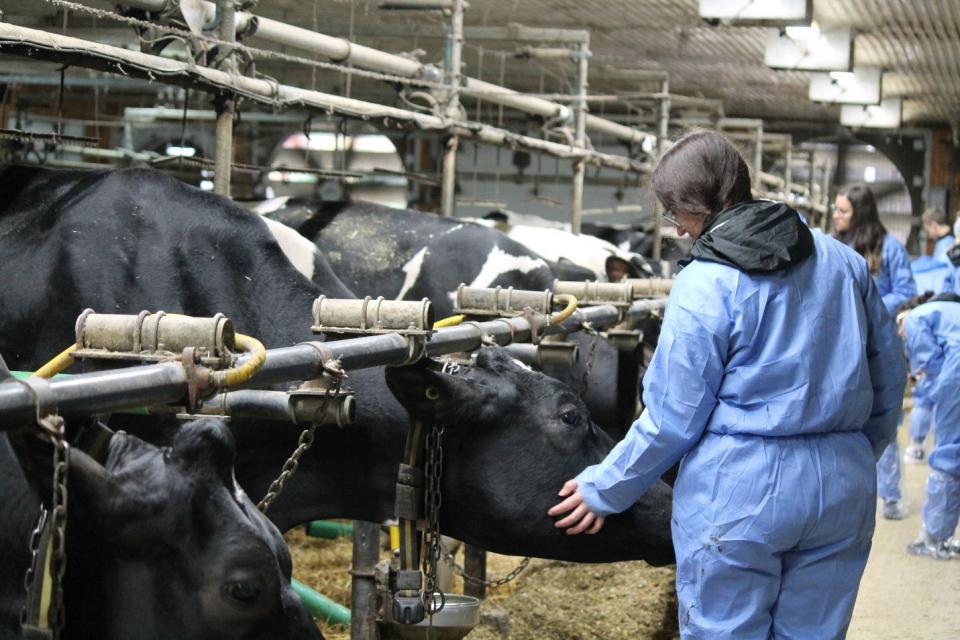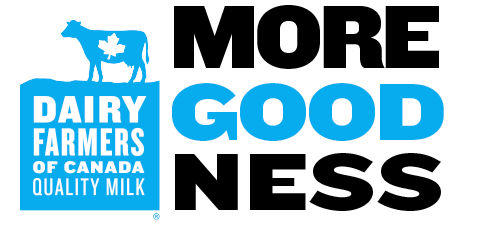Highlights
- The new biosecurity module relates to the practices of preventing, reducing, or eliminating the introduction of infectious disease among cattle.
- Each step is designed to protect cattle health, improve farm efficiency, and keep Canadian milk of the highest quality.
The quality milk produced by the Canadian dairy farmers is regarded world-wide as an example of excellence in the industry. Though every step of the supply chain is essential in ensuring this quality, production begins with the farmers. Canadian dairy farmers have long understood the importance of practices which reduce the spread of infectious diseases on the farm. The impact on animal health, milk quality, and farm efficiency is clear, and with ever evolving methods of protecting the health of cattle, many farmers and veterinarians alike have adapted their work to provide the best care possible.
In September of 2019, the proAction® national quality assurance program led by Dairy Farmers of Canada (DFC), in conjunction with provincial dairy associations, moved a new module, biosecurity, into its required assessments. This critical step made industry standards for biosecure farm practices mandatory, measurable and transparent. This is the latest phase for the proAction initiative which built on the program previously known as Canadian Quality Milk. The proAction program now has a 99% registration rate* of Canadian dairy farmers in the rolled out requirements and accountability measures for food safety, animal care, and livestock traceability.
The new biosecurity module relates to the practices of preventing, reducing, or eliminating the introduction of infectious disease among cattle. These practices include identifying points of entry and spread of disease throughout the farm and implementing methods of sanitation management for cattle, equipment, vehicles, and personnel.
Each step is designed to protect cattle health, improve farm efficiency, and keep Canadian milk of the highest quality. Examples of these new standards range from appropriate protection such as clean boots or boot covers for guests, biosecurity signage, and clear records of diseases on the farm.
In this module, a farm must conduct a Biosecurity Risk Assessment Questionnaire (RAQ) every 2 years with their herd veterinarian and implement clearly documented Standard Operating Procedures (SOP) related to biosecurity. These measures provide the data and processes required to demonstrate the level of excellence required by proAction, already attained by many farmers today.
The value of proAction was presented in the 2017-2018 progress report which showed third-party recognition by the Canadian Food Inspection Agency (CFIA) and the National Farm Animal Care Council (NFACC). The report also detailed a high level of compliance with animal care requirements in the first year of validation, proving that most Canadian dairy farmers met the proAction requirements on their first validation assessment, without needing to adjust their practices.
More recently, because of proAction, DFC received recognition by Unilever, that the way milk is produced in Canada compares with their robust Sustainable Agriculture Code.
The next and final module of proAction will be the environment component, scheduled to become available for validation by farms in September of 2021. The status of the Canadian dairy industry as world leader is now proven, and recognized, by the thorough documentation required by proAction, which provides transparency for customers such as processors, and demonstrates a measurable commitment to optimization and ongoing improvements by all dairy farmers. Ongoing learning and optimization is essential for proAction, and as the program moves forward, the lessons learned will provide suggestions for continued improvements, solidifying the industry’s place as a world leader.
To learn more about the proAction program, please visit https://www.dairyfarmers.ca/proaction.
* The remaining 1% includes new farms, farms with late corrective actions required, or those afflicted by disasters or major incidents.





